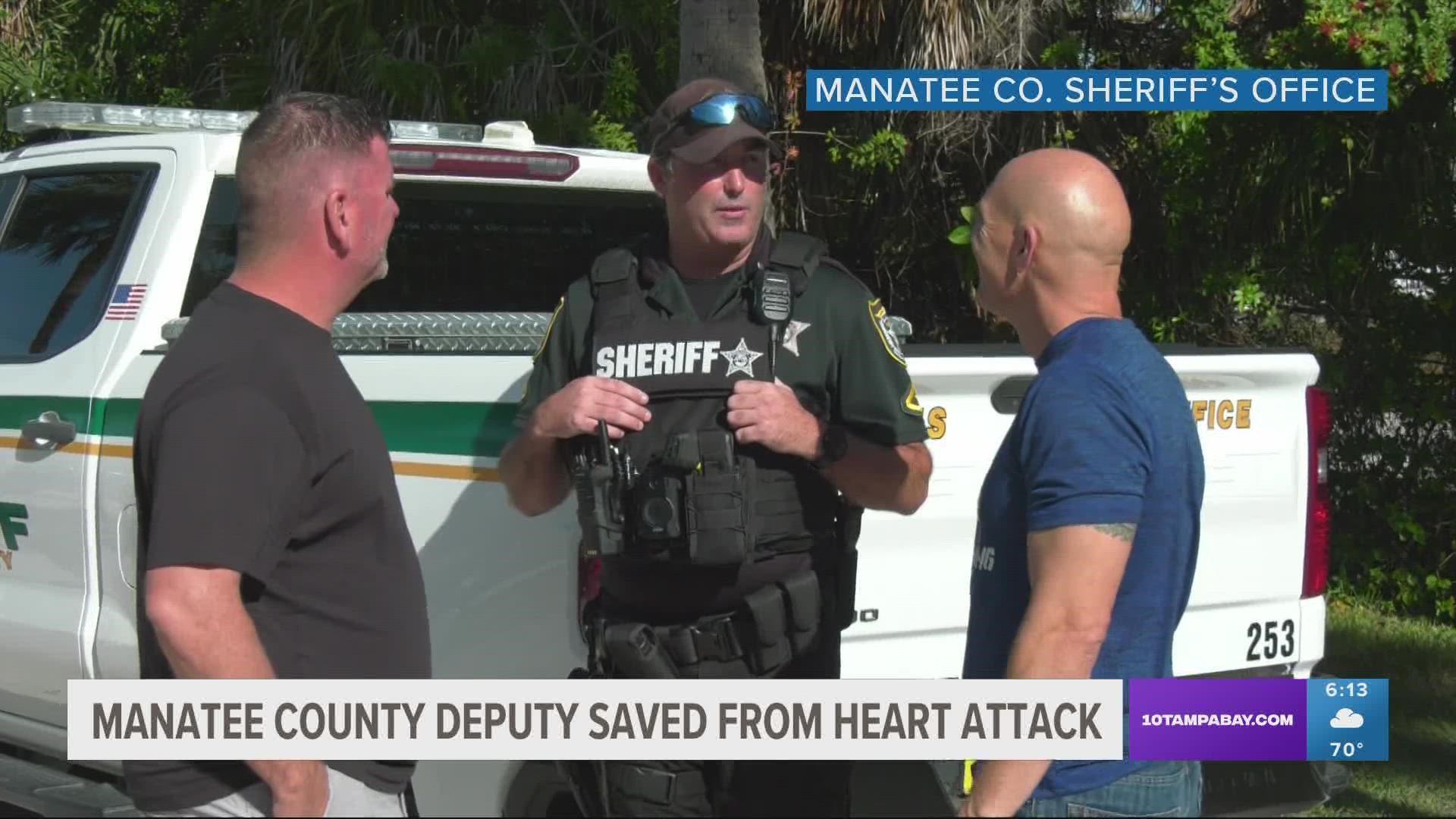MANATEE COUNTY, Fla. — A Manatee County Sheriff's deputy is being hailed a hero for saving the life of another deputy who was having a heart attack.
The deputy's training in his former job as an EMT and knowing how to use a defibrillator as part of CPR made the difference.
The incident happened on the morning of Dec. 19 when Manatee County Sheriff's deputy Brett Getman was called to work on a trespassing complaint. Getman searched for and located a suspect on the beach and made an arrest. However, moments afterward, he suffered a different kind of arrest; cardiac arrest.
"I came back to the office, started doing my report and I blacked out," Getman said.
Getman then fell out of his chair and slumped onto the floor. Luckily for him though, co-worker deputy Jared Leggett was right there and sprung into action. A race ensued to try to save Getman's life before help could arrive.
"I checked for a radial pulse, he didn't have one, I checked for a cranial pulse he didn't have one. I started CPR immediately and chest compressions," Leggett said. "I reached up and grabbed the AED off the counter and after two rounds of CPR, I was able to get the pads on him. Immediately, it gave me a 'shock advised' so I hit the shock button and gave him his first round and I started CPR again."
According to what he was told by his doctors, Getman suffered an anterior STEMI (ST-segment elevation myocardial infarction) or what's commonly called a widowmaker heart attack.
The National Institute of Health describes a widowmaker heart attack as when the biggest artery in the heart is blocked at the beginning of the left main artery or the left anterior descending artery (LAD) thereby causing a restriction of blood supply to half of the heart's muscles.
The American Heart Association says out of 350,000 cardiac arrest events in the United States yearly only about 10% of those people survive.
"Out of all of those, CPR can double or triple those odds for people. One of the biggest issues is that only about 46% of people say they feel comfortable giving CPR," spokesperson with the American Heart Association Johnny Johnson said.
Luckily, Leggett had 10 years of experience as an EMT and there was a nearby functioning defibrillator that put him in the right place at the right time.
"This was my supervisor, my sergeant, my coworker, my friend, and that was by far the hardest thing you could possibly go through," Leggett said. "On this day for whatever reason, I didn't go sit underneath a tree to work on my report, I went back to the district to sit with Sergeant Getmann."
"Everything lined up that he was in there when I went down and he was able to provide the medical assistance I needed due to his previous training," Getman said. "If it wasn't for him, I don't know if I would be here."
While one must call 911 in an emergency situation, the American Heart Association says having a well-stocked First Aid kit and CPR training are important first steps in saving a life before first responders arrive to provide medical assistance. Several local governments and municipalities offer CPR training that includes teaching how to use a defibrillator.

